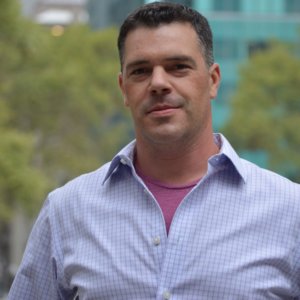
It can be a shock when a candidate turns down a job offer. After all, you wouldn’t have made the offer to someone if you didn’t think they would accept it. You put significant time and effort into interviewing this candidate. Of all the applications you received, this was the one you judged to be the best fit for your company. And now you’ve got to go back to the “drawing board.” It can leave you scratching your head, wondering “Why?”
This can be a frustrating experience. But the good news is that it can be avoided. The reasons most people turn down jobs are not mysterious. If you know what to look out for, you can usually see it coming. And you might even be able to turn a “no” into a “yes.”
Here are the REAL reasons why people turn down jobs. Keep these points in mind not just when decision time comes but throughout the interviewing and hiring process. If you understand the hurdles ahead of you, it’s a lot easier to navigate your way to the finish line.
- They don’t want the job.
This sounds too easy, but it’s true. During the interview process, companies take so much time extracting information from candidates, quizzing, testing, and almost putting them through a dental exam to see if they’re worth making an offer to, only to have that offer be declined.
Did you ever ask the candidate, “Do you want this job?,” “Do you really want to work here?,” or “Are you excited about the opportunity to join our team?” It’s easy to forget that interviews are a two-way process. The candidate is also using the interview to learn more about the position and decide if it’s the right fit for them.
Before you make an offer, be honest with yourself about whether the job you’re offering is one that this “perfect” candidate you’ve found is likely to want. Here are some points to take into consideration:
- People accept a position for a lot more than just monetary reasons. Even if you meet a candidate’s salary expectations, it’s rarely the only factor they’re considering. And the flip side of that is also true — a lot of money may lure someone to work for your company, but will it keep them there?
- What is the company’s technology platform? Is it legacy or cutting edge? What innovative ideas are you pioneering? It’s easy to overlook, but candidates like to be excited about the tools they’ll get to work with at their new job.
- What is the title and actual role itself? If they’re a Principal Engineer, call them that, not “Senior.” Yes, this matters. (Lots of people like to say that titles don’t matter, but it’s much easier to say that when you already have the title you want.)
- The job isn’t better than where they’re currently working.
Is the move an actual progression in their career or is it lateral? Why would someone leave a job they are currently doing and do the same job somewhere else? People don’t make lateral moves. The best candidates are always looking to grow and to be challenged. Make sure you’re offering them a step up – not just in salary, but in skills and responsibility. - They’re keeping their options open.
The unforeseen market is worth pursuing. There is a lot out there, and the market for talented tech people is highly competitive. When it comes to candidates in tech, we’re talking about some of the most in-demand skill sets that companies need. The reality is that they just might want to keep pursuing their other options.
If you can identify any of these as potential issues during the interview process, it doesn’t mean to give up on the candidate right away. Many candidates are still undecided at this stage, so use the opportunity to sell your company and its mission, and you may win them over. Still, not every candidate is the right fit, and identifying these roadblocks early can save you a lot of wasted effort and time.
The true takeaway is this: if you understand what the challenges in getting your offer accepted are, then knowing the answers to the real questions will help. This is where a true value-added partner like Averity is critical in delivery. Averity has the expertise to help you find qualified candidates that will be just as excited about joining your team as you will be about welcoming them aboard.


Create an Account or Sign In